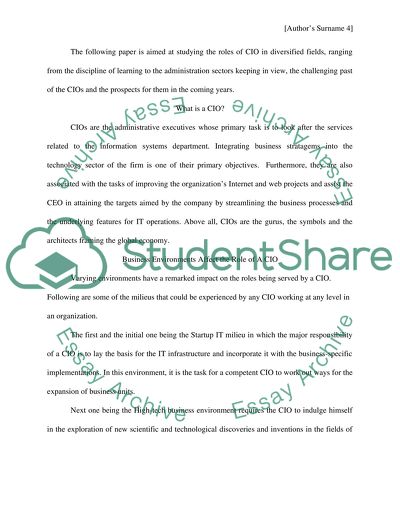Cite this document
(“The Role of a CIO (Chief Information Officer) Essay”, n.d.)
The Role of a CIO (Chief Information Officer) Essay. Retrieved from https://studentshare.org/miscellaneous/1524692-the-role-of-a-cio-chief-information-officer
The Role of a CIO (Chief Information Officer) Essay. Retrieved from https://studentshare.org/miscellaneous/1524692-the-role-of-a-cio-chief-information-officer
(The Role of a CIO (Chief Information Officer) Essay)
The Role of a CIO (Chief Information Officer) Essay. https://studentshare.org/miscellaneous/1524692-the-role-of-a-cio-chief-information-officer.
The Role of a CIO (Chief Information Officer) Essay. https://studentshare.org/miscellaneous/1524692-the-role-of-a-cio-chief-information-officer.
“The Role of a CIO (Chief Information Officer) Essay”, n.d. https://studentshare.org/miscellaneous/1524692-the-role-of-a-cio-chief-information-officer.


